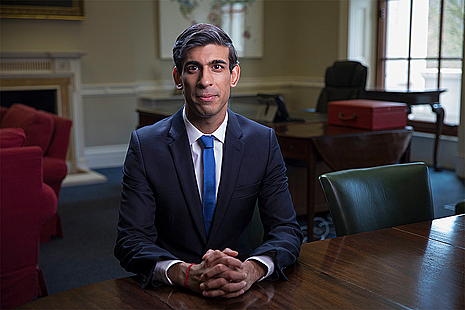
Chancellor Rishi Sunak today (23 March) announced a 5p per litre cut to fuel duty in a bid to support drivers and the logistics industry in dealing with the impact of inflation and the Russian invasion of Ukraine on fuel prices.
Trade and logistics bodies have said the move will “strengthen the UK’s supply chain”.
The Chancellor also said he would work with businesses over the summer on moves that could increase UK productivity at the next Autumn Budget, including new approaches to boosting skills, capital investment and ideas.
Biggest fuel cut
Addressing MPs during today’s Spring Statement, Sunak said the fuel duty rate cut will last until March next year and will take effect from 6pm tonight.
He said the cut will be worth £5bn a year and called it the “biggest cut to all fuel duty rates ever”.
Difference maker
IOE&IT director general Marco Forgione said the measures would have a significant impact for traders that move goods by road.
“Traders moving goods by road will welcome the cut in fuel duty announced by the Chancellor – it will make a difference to costs in what is a tough environment,” he said.
Burden lifted
Elizabeth de Jong, director of policy at Logistics UK, said the cut was required because of the “unsustainable burden” logistics businesses were facing due to rising fuel prices, particularly as they operate “on very narrow margins of around 1%”.
“Fuel is the single biggest expense incurred by logistics operators, accounting for a third of the annual operating cost of an HGV,” she tweeted.
The duty cut “will strengthen the UK’s supply chain during a time of ongoing financial and operational challenges”, she added.
Rebate
Richard Smith, managing director of the Road Haulage Association (RHA), also welcomed the move but said more government action was needed.
“We welcome Rishi Sunak’s 5p per litre cut in fuel duty and hauliers and coach operators will benefit,” he tweeted. “But with fuel prices increasing at an alarming rate, it is essentially a short-term fix." The long-term solution, Smith added, is an essential user rebate.
The RHA yesterday told BBC Breakfast that it is calling for the government to introduce a 15p per litre rebate for “essential users” of fuels, including the logistics industry.
Training and skills
Sunak also said he would “work with businesses over the summer” on plans to boost UK productivity by investing in “people, capital and ideas”.
He said only 18% of 25–64-year-olds in the UK hold a vocational qualification, a third lower than the average among OECD countries, adding that British employers spend half the European average on employee training.
Sunak will consider whether the tax system, including the operation of the apprenticeship levy, “is doing enough to incentivise businesses to invest in the right kinds of training”.
Right skills needed
Forgione agreed with Sunak that more needs to be done to incentivise “the right kinds of training”.
“To survive and thrive in this tough environment, businesses need the right skills. So we welcome the commitment in the Spring Statement to examine whether the tax system is doing enough to incentivise business to invest in the right kinds of training,” he said.
International Trade Accelerator Scheme
He added that to support UK productivity, the IOE&IT has been offering free places on IOE&IT training courses via an ‘International Trade Accelerator Scheme’.
“A fortnight ago, IOE&IT set up a £1.1m fund to provide businesses with access to free places on our International Trade Accelerator Scheme, which offers training in how to trade internationally. We have been bowled over by the take-up with over 1,000 businesses already signing up,” he said.
“This disproves the accusation the British businesses are somehow too lazy to train. If training can be made cost-effective, it will pay for itself in productivity gains.”
Innovation and capital
Sunak also said the government would reform research and development tax incentives to boost British innovation.
He added that he will look at ways of cutting the tax rate on business investment ahead of the Autumn Budget.
National Insurance
Although Sunak didn’t scrap the upcoming hike to National Insurance (NI) contributions from April, he did announce that the income threshold for employees paying NI will rise by £3,000 to £12,570 from July.
According to consumer money saving expert Martin Lewis, this means that people earning under £35,000 will see no rise in NI payments from July.
Sunak also announced plans to cut the basic rate of income tax from 20p to 19p per pound by 2024.



